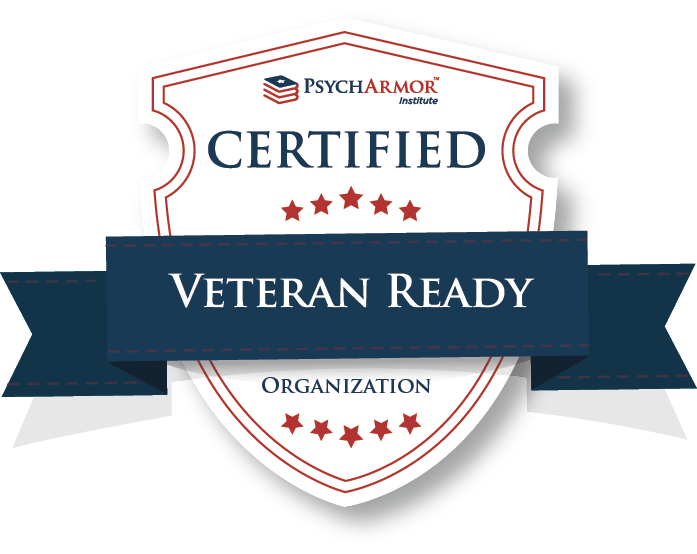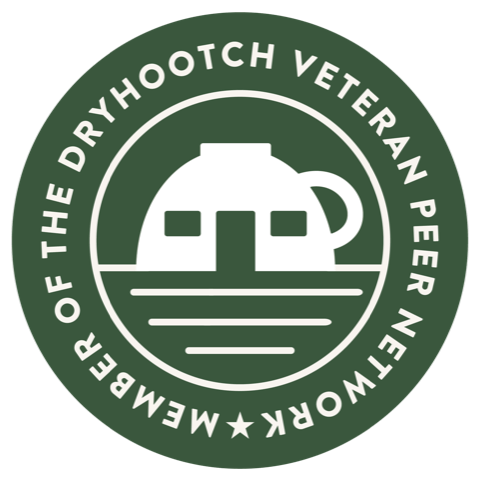Posted by Gabriel Tynes
Submitted | Veterans Recovery Resources is planning to renovate a blighted school building on Springhill Boulevard to create a residential recovery campus for veterans and first responders.
John Kilpatrick knows the struggle. He enlisted in the Marine Corps just out of high school and was deployed to Operation Desert Storm. He didn’t go into detail, but the aggression and brutality of that six weeks of combat in 1991 are well documented in historical texts.
“When somebody does or witnesses something in direct conflict with their moral compass, sometimes when we get back, we can’t quite reconcile it,” he said last week. “It causes all sorts of problems with addiction and anxiety.”
According to the Department of Veterans Affairs (VA), one in five veterans is afflicted with depression or post-traumatic stress disorder (PTSD) and Kilpatrick admits he was one.
“I struggled with a lot of things post-combat and stayed drunk for about five years,” he said. “But I found recovery in 1996 and have been sober ever since.”
In 1998, Kilpatrick joined the Army National Guard’s Officer Candidate School and was commissioned as colonel in the Medical Service Corps. He found a specialty in health care operations, was deployed twice again over the past 20 years and worked an 18-month assignment in the Pentagon on staff for the surgeon general of the Army.
“While there, I got to work on a substance abuse program and my personal experience led me to take action when I got back to Mobile from my last appointment in 2016,” he said. “What I learned working at the Pentagon is the approach to addiction and substance abuse problems has typically been all clinical. You see doctors, get appointments, they treat and then you’re supposed to be cured. But it really doesn’t work that way.”
Kilpatrick said in 2014 the VA was “overwhelmed” with patients whose ailments, in some cases, weren’t physical. Congress passed the Veterans Choice Act (VCA), which allowed those waiting for VA treatment to seek it from community partners.
“Back then, say you needed drug and alcohol treatment, you would wait six to eight months to get into the program in Biloxi,” he said. “But what the VCA said is, ‘if you’re a vet and you can’t get care within a certain distance or time, you seek help elsewhere.”
Kilpatrick coordinated with other stakeholders and formed the nonprofit Veterans Recovery Resources at 1156 Springhill Boulevard in Mobile, which provides an interdisciplinary recovery program with the assistance of area doctors, nurses, psychologists, social workers, counselors, and peer support specialists. Service includes primary care, counseling, physical and occupational therapy, family support and community engagement.
Since the clinic opened in 2018, Kilpatrick said it has served about 375 veterans and their families. It also caters to first responders struggling with the same problems.
“In my experience, I needed clinical help, but long-term recovery depends on the recovery community where members are looking out and taking care of each other,” he said. “That’s what we looked to create with Veterans Recovery Resources, a clinical model infused with the ideals of peer support.”
Kilpatrick noted he believes the VA performs well within the confines of legislation governing its scope of services, but community partners like Veterans Recovery Resources do not have the same constraints.
“If a veteran doesn’t have a car or lost their license due to a traffic infringement, the VA can’t provide transportation, but we can. We can make telehealth appointments and house calls. We’re all about removing whatever barriers necessary to give veterans and patients complete treatment,” he said.
The organization has been so successful, it now aims to renovate the dilapidated-but-historic school building next door and open an entire residential recovery campus.
“It’s on three acres of land where we intend to build the only residential detox and treatment facility south of Birmingham,” Kilpatrick said. “Such a facility is the most critical, urgent, unmet need in our community. And we are committed to building one.”
The organization has already raised $4.4 million of the estimated $6.5 million to bring the project to reality, but Kilpatrick said they intend to start work soon on stabilizing the building and performing environmental abatements.
Once complete, it will include 16 beds for residential treatment, six to eight detox beds and 20 beds for short-term supervised housing.
“It will be a $6.5 million capital investment, employing 55 people with an annual payroll of $3.5 million in the worst part of town,” Kilpatrick said. “We’re not here just to help individuals — we want to help the community.”
Those seeking treatment may contact Veterans Recovery Resources at 866-648-7334. The office is open Monday through Friday, 8 a.m. until 6 p.m. For more information, visit veteransrecoveryresources.org.
Article Link: https://lagniappemobile.com/veterans-recovery-resources-aims-to-expand/




